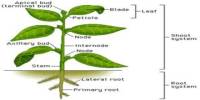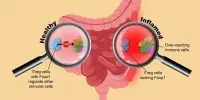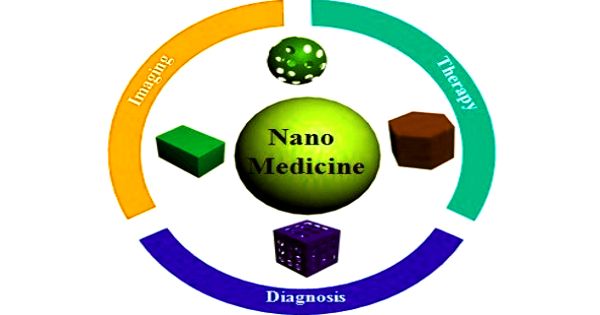Experts in Japan have discovered a key component of the immune system’s long-term memory, adding to the quest for improved vaccinations against diseases ranging from COVID-19 to malaria.
The findings, which were published in the Journal of Experimental Medicine, show that the enzyme TBK1 plays a new role in determining the fate of immune system memory B cells.
The immune system is made up of a variety of cell types, but the two most important for this University of Tokyo study are CD4+ follicular helper T cells and B cells, which are white blood cells.
Follicular helper T cells send chemical signals once the body detects an infection, causing young B cells to learn and remember which pathogens to attack. The germinal center, a transient cell structure seen in immune system organs such as the spleen, lymph nodes, and tonsils, is where T-to-B cell signaling and B cell training take place.
Memory B cells produced in the germinal center memorize a pathogen the first time it infects you, and if it ever re-infects you, the mature, trained memory B cells combat it by stimulating antibody production before the pathogen can expand, protecting you from being sick a second time.
“A goal of vaccination is to produce high-quality memory B cells for long-lasting antibody production,” said Project Assistant Professor Michelle S. J. Lee from the UTokyo Institute of Medical Science, first author of the recent publication.
“There are many factors to consider when designing vaccines for long-lasting immunity, so we should not focus only on the germinal center alone. But if you don’t have a functional germinal center, then you will be very susceptible to reinfection,” said Lee.
A goal of vaccination is to produce high-quality memory B cells for long-lasting antibody production. There are many factors to consider when designing vaccines for long-lasting immunity, so we should not focus only on the germinal center alone. But if you don’t have a functional germinal center, then you will be very susceptible to reinfection.
Michelle S. J. Lee
You can, however, be bitten by mosquitos and reinfected with the malaria parasite an unlimited number of times. Malaria parasites manage to evade memory B cells in some way. Despite the fact that children are more likely than adults to die from malaria, some people can become seriously ill despite having had several previous illnesses.
Professor Cevayir Coban, who leads the Division of Malaria Immunology at the UTokyo Institute of Medical Science and is the last author of the research paper with Lee and collaborators at Osaka University, finds malaria to be an intriguing pathogen because of the parasite’s ability to prevent and evade effective B cells.
“We want to understand the fundamentals of the natural immune response. Whatever we do should aim to eventually benefit malaria patients,” said Coban. “The COVID-19 pandemic brought global attention to infectious diseases and interest in vaccine design, so we have a chance to renew the focus on neglected diseases like malaria,” she continued.
The molecule TBK1, an enzyme that can modify the activity of genes or other proteins by adding chemical tags through a process called phosphorylation, has a wide range of activities in the scientific world. Antiviral immunity is a well-known function of TBK1.
However, no study had previously linked TBK1 to B cell fate or the germinal center. Researchers created mice with nonfunctional TBK1 genes in certain cell types, primarily B cells or CD4+ T cells. Researchers now have a better understanding of what TBK1 does in different cells of the body because to this cell type-specific knockdown.
Coban, Lee, and their colleagues infected these transformed mice and healthy adult mice with the malaria parasite then monitored their health and studied spleen and lymph node samples.
Germinal centers form only in mice with functional TBK1 in their B cells, according to microscopy photos. Mice lacking TBK1 in their B cells were more likely to succumb to malaria infection and die sooner than their normal counterparts.
Additional research revealed that the few mice who survived malaria without TBK1 in their B cells were able to deploy various immune responses, but they were susceptible to reinfection.
TBK1 deletion in CD4+ follicular helper T cells, on the other hand, had no effect on the germinal centers or the mice’s response to malaria infection.
Further investigation revealed that numerous proteins in immature B cells lacking TBK1 exhibited aberrant phosphorylation as compared to normal immature B cells. Abnormal phosphorylation can induce abnormal increases or decreases in activity for certain genes.
Researchers believe that TBK1 activity in B cells functions as an off switch for certain genes, thereby turning off genes that keep B cells immature.
“This is the first time to show TBK1 is essential in B cells to form the germinal centers and produce high-quality, mature antibodies,” said Lee.
Researchers expect that, with greater fundamental knowledge of the immune system’s remaining mysteries, future vaccines can be developed to elicit longer-lasting immunity, possibly without the need for additional vaccine doses.
However, the specific characteristics of each disease and its modified variants will always challenge vaccine creation, especially in the case of rapidly changing pathogens like Sars-CoV-2, the virus that causes COVID-19.
“For now, we can at least say that an effective vaccine tailored to produce long-lasting protective immunity should not reduce TBK1 activity in B cells,” said Coban.
















